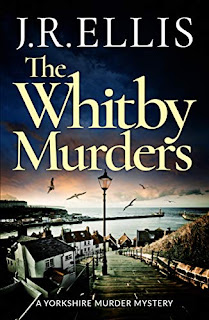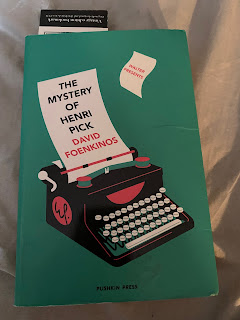Where did I get it? I bought it a few years ago when I was looking for YA books which featured abortions. I must have had it recommended or googled it, and bought it. I had completely forgotten about it and it was on a shelf, but then about two months ago I pulled it off the shelf and added it to the huge pile of books next to my bed. I'm not sure why! But I did! By which point I just couldn't remember what it was about at all, so it was a total surprise.
What's it about? It's a novel told in verse (which you already know I love) starring Addie, who is in high school in Minnesota. She has a boyfriend called Craig but he's cheating on her. She then starts seeing his friend Nick and they have sex multiple times. Addie is on the cross country run team and is very good, she's one of their best athletes.
She realises she is pregnant and tells Nick, and then her parents. She doesn't want to tell her parents because she's afraid of letting them down, but she has to because an abortion in Minnesota requires parental consent for minors. The actual abortion is barely touched upon, which I liked. But Addie goes to a Catholic school and in one of her classes is a girl who think abortion is a terrible sin. Addie also writes poems and Nick, who is in a band with a terrible lyricist, wants her to write some lyrics for him.
She doesn't regret the abortion at all. She does start missing running practice though. She starts to go to a different coffee shop while pretending to her parents that she's at practice, and while there she meets Juliana, who used to be on the running team but is now at college. The two start to get close, and there's a bit of a relationship/crush between them. Addie is pulling away from everything she knows - but can she find herself again?
I loved the poems, they were just lovely and really got across the whole novel in such a good way. I read this quickly because it was just so nice.
What age range is it for? 15+
Are any main characters LGBTQ+? Yeah kind of, definitely there's something between Addie and Juliana even if it's not explicitly labelled by the end of the book
Are any main characters people of colour? I don't think so
Are any main characters disabled either mentally or physically? Juliana has mental health problems
Is there any sex stuff? Yes, it's a bit explicit (in a very good way!)
Are drugs mentioned or used? No, the abortion drugs are barely mentioned either
Is there any talk of death? There's a little bit about an attempted suicide, it's not graphic
Are there swear words? No
What criticisms do
I have? I wished it was longer! I wished we'd seen more of Addie and Juliana falling in love!
Would I recommend the book? Yes especially if you like books told in verse.
Why did I choose to read it at this point in life? I pulled it off the shelf to get to it, so I did!
What do I think of
the cover? I like it, it's cute
What other books is
it like? Well anything by Sarah Crossan definitely
How many stars? Four out of five
Where is the book
going now? I think I'll keep it!



















